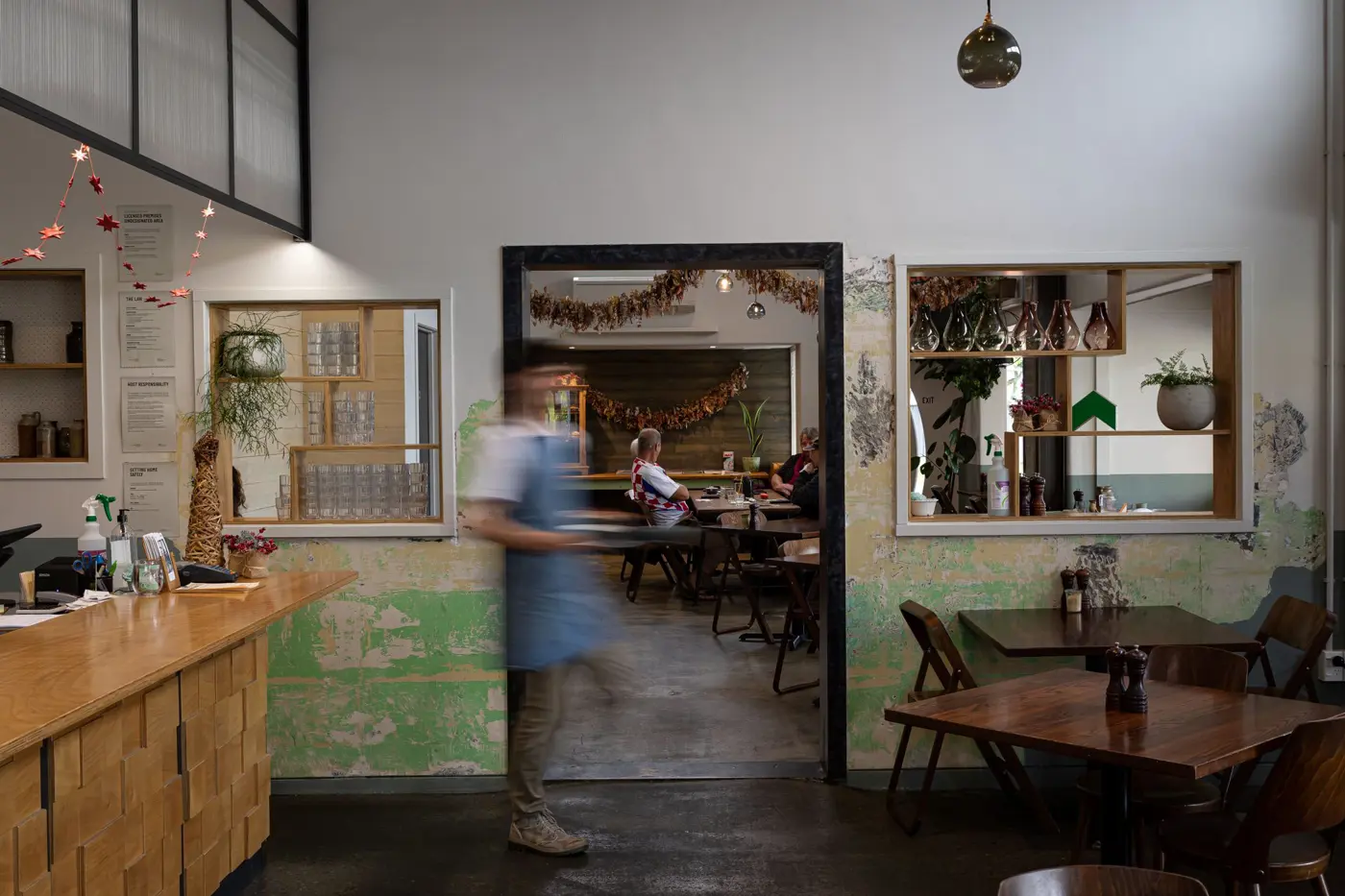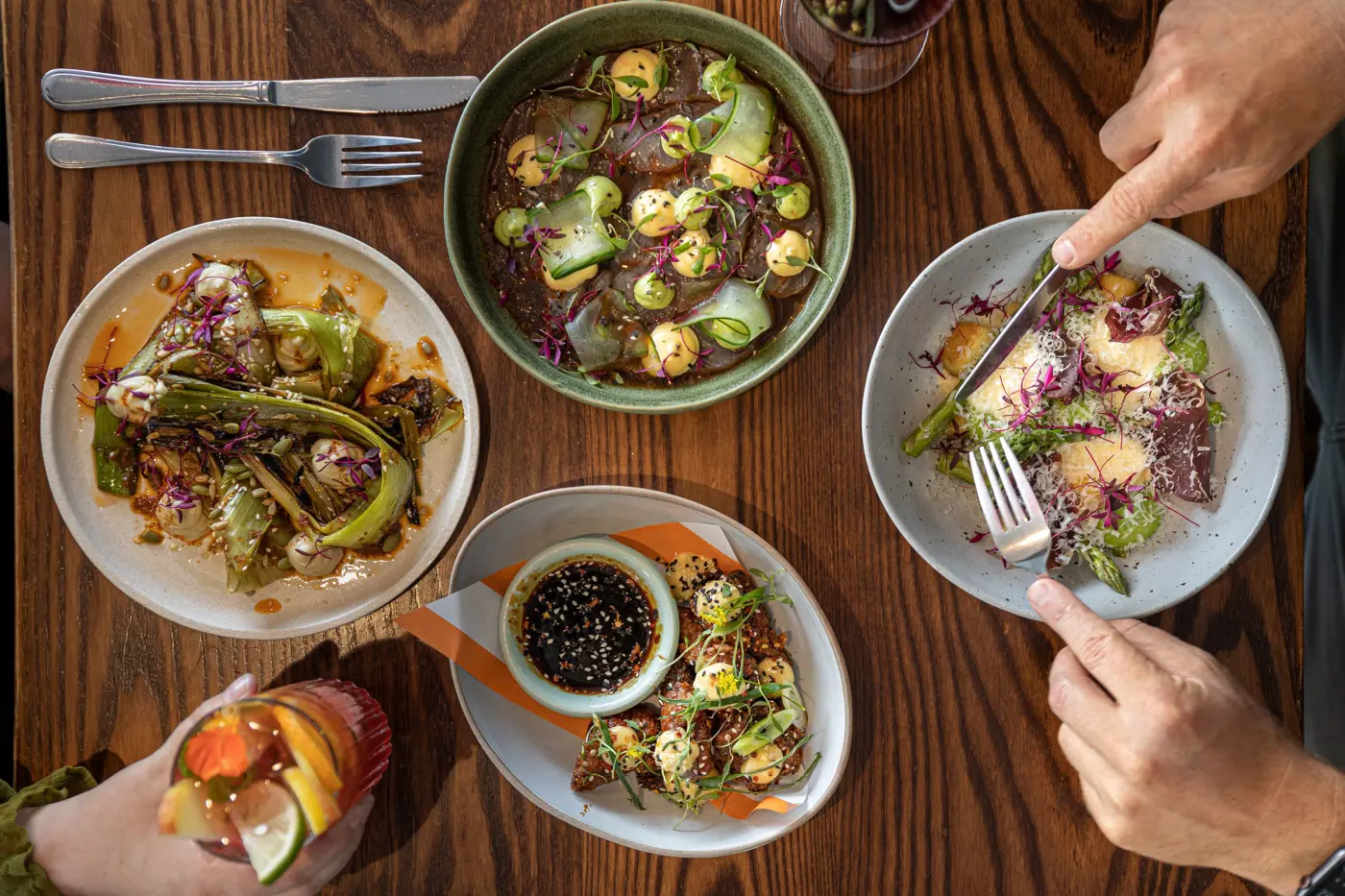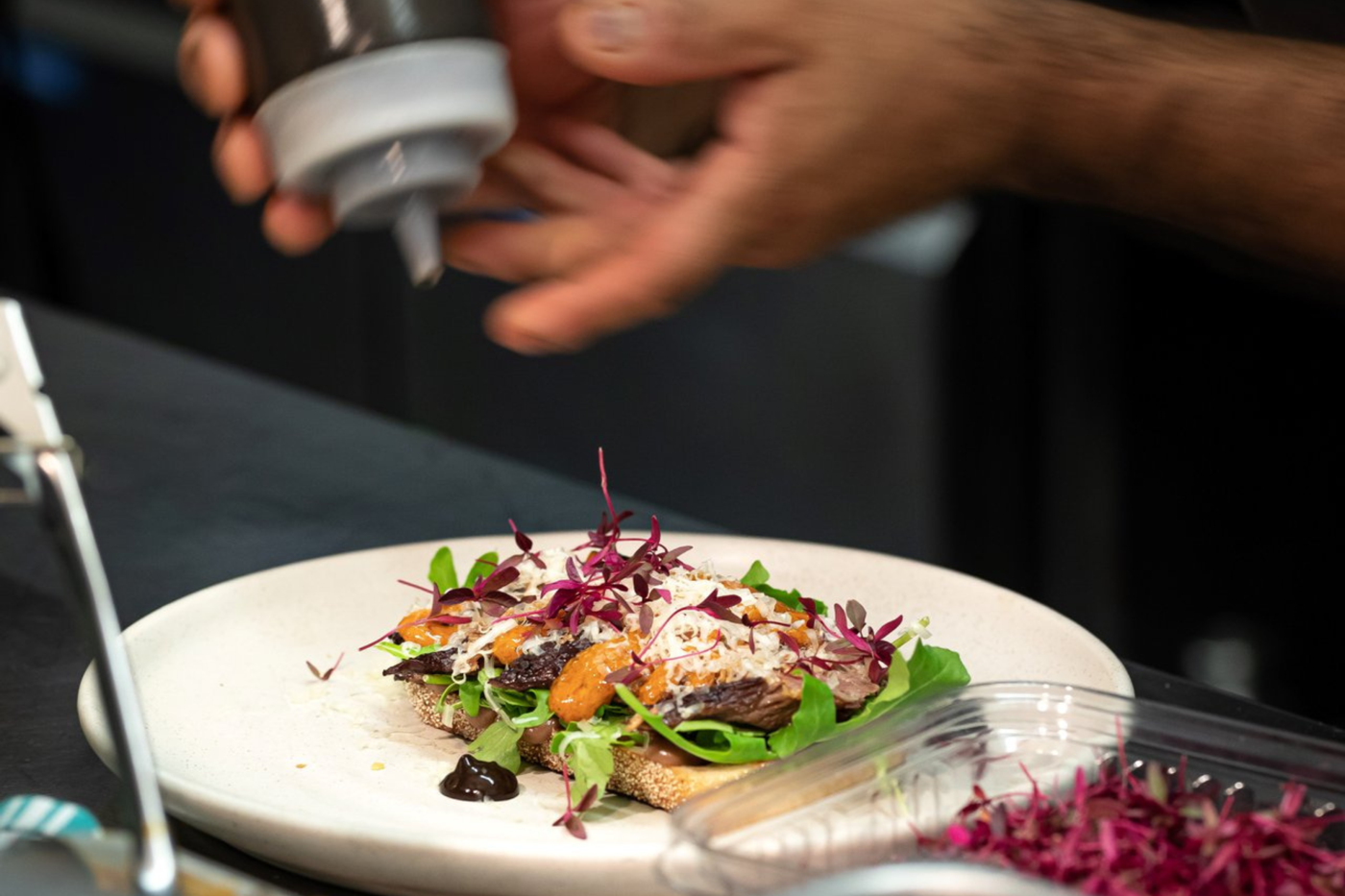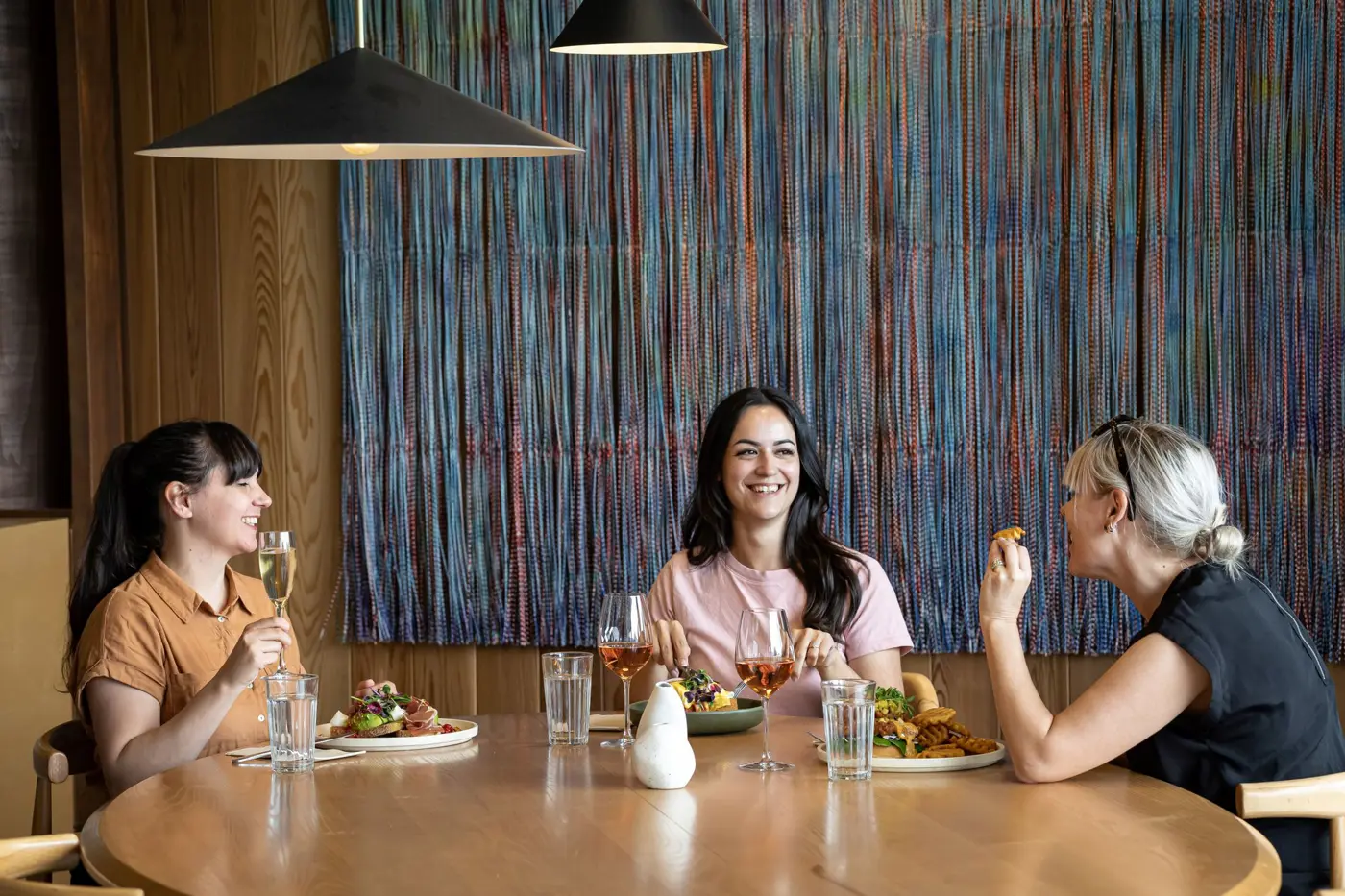Hayes Common & Weave - Neighbourhood Eateries

The couple also created River Kitchen Café, where their oldest daughter spent some of her babyhood sleeping on a stack of bread boxes at the back of the kitchen. Customers willingly took turns holding the infant when extra pairs of hands were needed. “I wouldn’t recommend it,” Lisa says of juggling motherhood and those early, hectic years in business. “But I didn’t really think about it at the time and it was kind of lovely, too. People were lovely.”

A community living room
Family and community are enmeshed in the couple’s current ventures. Hayes Common, which inhabits a former corner shop in Hamilton East, was specifically and carefully designed to welcome locals. “We lived down the road ourselves, we’ve always loved the building and the area. It’s a colourful, heritage neighbourhood, with quaint streets and a really great community. We’ve met a lot of our best friends in that community. So we had really clear ideas that we wanted the place to feel it had always been there, that it’s an extension of people’s living rooms. It had to feel warm and inviting, like you could be there any time of day. And we really see that. People bring the family in, bring the dog.”
The couple’s second eatery, Weave, sits in a business and technology park. The daytime café may be newer and sleeker than Hayes Common but the Quarries were determined it would be a similarly welcoming meeting place for the corporate community.
So much great produce
Both establishments utilise Waikato berries and fresh greens, yoghurt and cheese in dishes that draw inspiration from multiple cultures and flavours. Locally-grown produce finds its way into roasted carrot hummus with pomegranate, za’atar and house baked kumara focaccia. Or sumac-spice lamb ribs with tzatziki. Or pumpkin gnocchi served with mushrooms, brown butter and hazelnuts. Or perhaps the ever-popular bao buns with house made sauerkraut and pickled radishes.
“We’re not trying to be super fancy or fusion, there’s nothing too polished. It’s more about good quality food using local ingredients. We’re trying to support local producers as much as we can. There is just so much great produce available here but we find it kind of goes under the radar.” Lisa’s culinary interest began early, thanks to creative parents – both worked as photographers and travelled extensively – who prepared the kinds of exotic dishes her schoolfriends had never seen.


Lifestyle and people
A creative friend sketched the layout – 15 seats inside, another 13 outside – on a sheet of paper. Builder friends helped with the fit-out of what was to become River Kitchen cafe. Then the Quarries proceeded to work 90-hour weeks to survive through an economic recession and the difficulties of establishing a new business in a city where they knew no-one. Three years later, their café was named the best in New Zealand. Business boomed until they sold to a staff member in 2016, to develop Hayes Common.
“Originally, we were only coming to the Waikato for three years but Hamilton has a way of getting under your skin. “We like the lifestyle. It’s great with a family. We’re tipping into a bigger city now but there’s still a sense of it being a smaller place that’s easy to get around, where we are able to visit our producers. There are such great people and so much going on here. “We’re definitely at home here now.”
Making magic
“I’ve always cooked and baked, my grandmothers both loved cooking and I’d watch any cooking show I could. I never really followed recipes, I love the magic of taking something and turning it into something else.” When she and Brent met in an Auckland café kitchen, he was working in radio and moonlighting as a chef, she was cooking to pay her way through journalism school. They travelled – and ate - together, turned their back on media careers and dreamed of launching a place of their own. Eventually, in 2007, they found a possible contender on Hamilton’s main street. “On a whim we kind of went, let’s do it. We had no money. We were very naïve in terms of business but we also kind of backed ourselves. It was quite small but we could immediately envisage it.”

